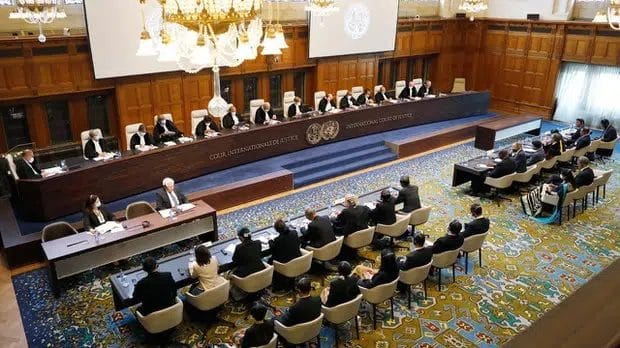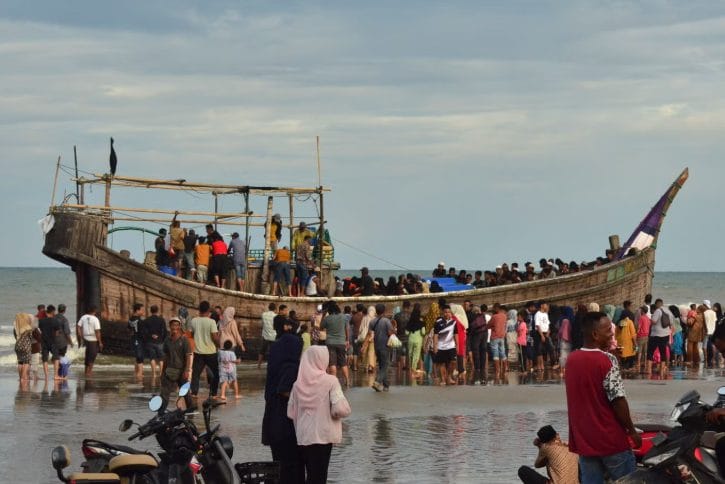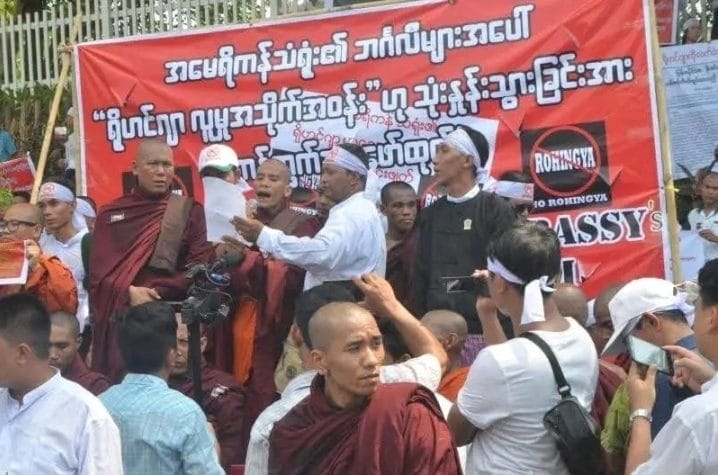Arakan News Agency | Exclusive
Bangladeshi border guards (BGB) prevented around 100 Rohingya refugees from crossing the Naf River from Arakan State in western Myanmar into Bangladeshi territory, pushing them back into the middle of the river where they remain stranded as of Sunday morning amid heavy monsoon rains and deteriorating health and living conditions.
Local sources told Arakan News Agency that the Rohingya refugees including women, children, the sick, and the elderly were transported on July 25 by motorboats from Buthidaung town in Arakan State to the island of Jaliadwip.
They added that a group affiliated with the Arakan Army (AA) handled the transport in exchange for payments of 700,000 Myanmar kyats per person, noting that the group forcibly pushed the refugees toward Bangladeshi waters without any protection in the early hours of July 26.
When the refugees attempted to cross, they were intercepted by Bangladeshi border guards who denied them entry and pushed them back into the river, where they spent the night without shelter, food, or medical care, amid reports of disease spreading particularly among children and the elderly.
The sources indicated that most of the refugees were residents of Buthidaung who fled abuses committed by the Arakan Army, including extortion, violence, and mistreatment. Others came from Maungdaw, fleeing arbitrary arrests carried out by the AA against Rohingya civilians.
Human rights monitors warned that current practices in AA-controlled areas including forced labor and severe restrictions on the Rohingya amount to serious human rights violations, in some cases exceeding the oppressive tactics previously used by the Myanmar military against this persecuted minority.
Since the Arakan Army seized control of most of Arakan State, it has committed violations against the Rohingya, including locking them out of their homes following false complaints, seizing their property, and displacing many families.
The AA also imposed severe restrictions on Rohingya movement between villages, reinforcing them with a network of security checkpoints at every village entrance and exit, and imposed tolls on pedestrians and motorcycle owners from the Rohingya community in exchange for bridge crossings.
In November 2023, the Arakan Army launched a military campaign against the Myanmar military to take control of the state, successfully capturing 14 out of 17 towns. The conflict has severely affected the Rohingya, who have suffered violence, forced displacement, and persecution from both sides after already enduring a campaign of “genocide” by the Myanmar army in 2017 that forced nearly one million to flee to Bangladesh.

















